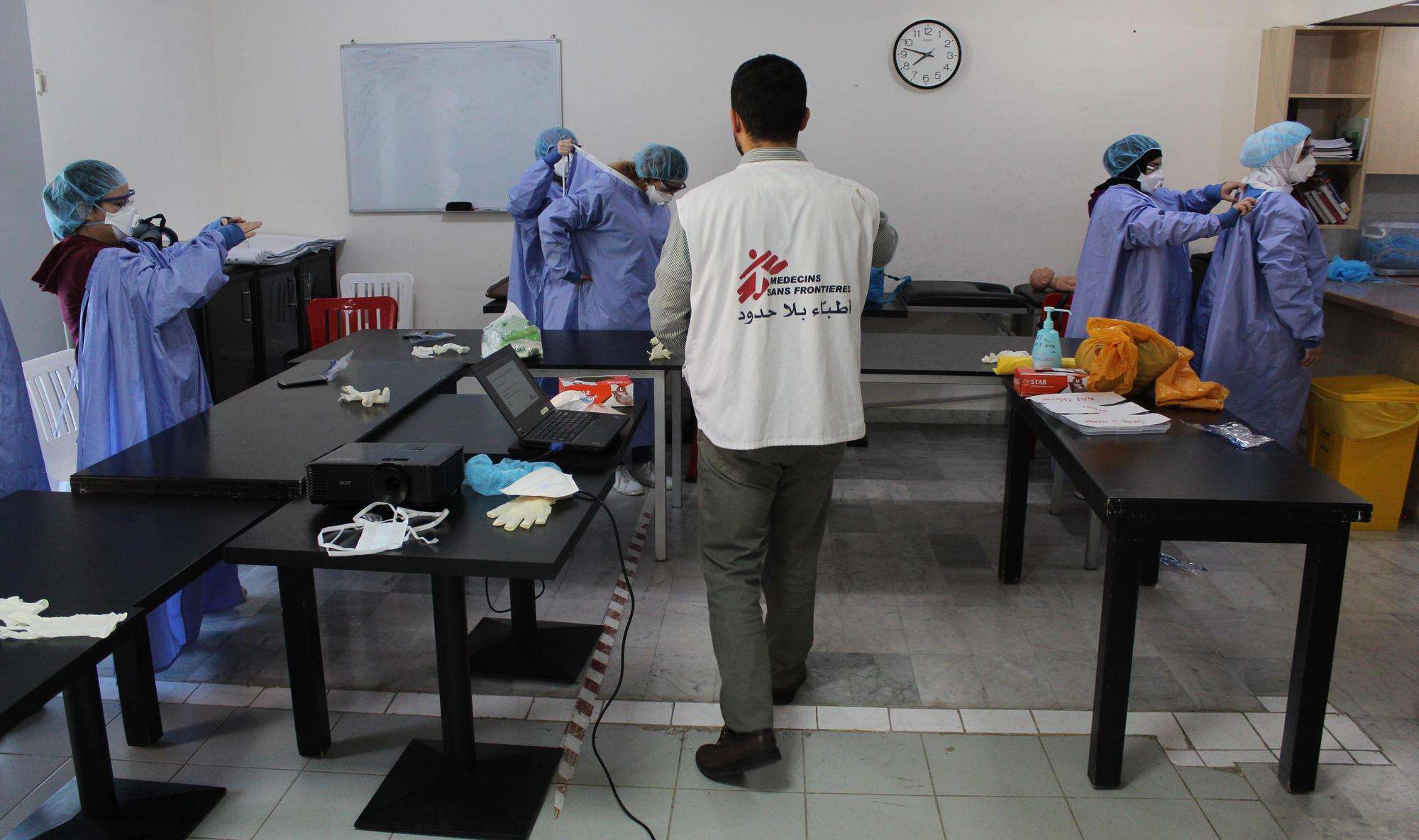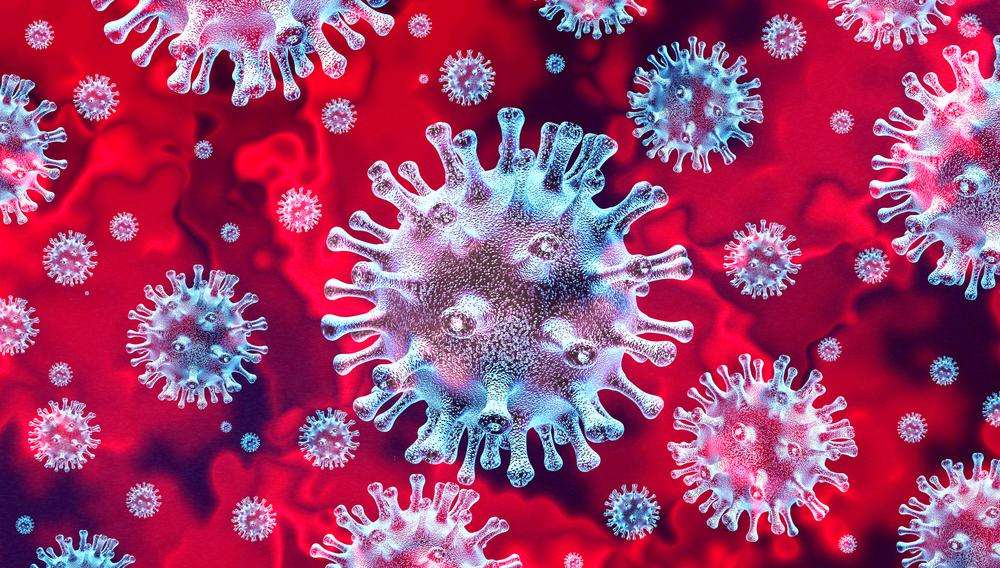Beirut/New York April 9, 2020—The international medical humanitarian organization, Doctors Without Borders/Médecins Sans Frontières (MSF), announced today that it will expand its programs in Lebanon to respond to the coronavirus pandemic. MSF’s COVID-19 response will focus on increasing access to healthcare for vulnerable communities, including refugees, and will involve adapting activities in its own facilities, health promotion in the community, and supporting government hospitals with their fight against the outbreak.
MSF intends to keep most of its regular medical programs running by strengthening infection prevention and control (IPC) measures. The non-COVID-19 medical needs of the communities MSF serves cannot be ignored.
“Building on our experience in emergency interventions and epidemic response, we started implementing triage and pre-triage in all our clinics for the protection of patients and staff,” said Amaury Gregoire, MSF’s head of mission in Lebanon. “The communities we serve are at higher risk of being affected because of the crowded settings they live in, their weaker general health status and the barriers many face in accessing health care in Lebanon.”
Increasing bed capacity in the Bekaa Valley
MSF’s response will also help to alleviate the growing need for hospital beds in the Bekaa valley, which is home to almost 350,000 refugees.
“We are concerned that the number of beds currently available in the Bekaa Valley may not be enough if the outbreak takes hold,” says Gregoire. “We are preparing our teams to receive cases in our facilities too, in response to the emerging needs of the Lebanese population as well as the Syrian and Palestinian refugees or anyone else in the Valley.”
In the town of Zahle, where MSF runs a pediatric ward in the Elias Hraoui Governmental Hospital, our teams are supporting the hospital staff by organizing the triage, screening, testing, and case management of children.Tents dedicated to the triage zone for children and treatment of non-suspected cases have been set-up outside the premises. The hospital, which is a COVID-19 referral hospital, will soon be ready to admit pediatric patients into the MSF ward, which is equipped with a pediatric intensive care unit (PICU).
Ministry of health staff are responsible for the triage, testing, and hospitalization of adult patients in the outdoor emergency room set up by MSF.
MSF will move its thalassemia unit to a separate area in order to protect children with thalassemia (a genetic blood disorder that can requires intensive treatment) from being exposed to coronavirus.
In the town Bar Elias, MSF’s hospital will also be equipped to receive COVID-19 patients. The hospital has an intensive care unit (ICU), more than 200 trained staff members, and its bed capacity will increase to 63. MSF usually provides elective surgeries and wound-care here, but has temporarily suspended elective surgery to prepare for a potential influx of COVID-19 patients. Patients requiring wound-care will be treated in a tent set-up outside the hospital.
Supporting government hospitals and isolation sites
MSF has worked in various areas in Lebanon since 2008. During that time, MSF has built connections with many public hospitals and medical actors who are now helping to fight the COVID-19 outbreak. MSF has contacted several of these hospitals to offer support with logistic services, medical supplies, and training of staff members.
In Saida, in southern Lebanon, MSF helped restore some biomedical equipment in Saida Governmental Hospital and provided technical and logistical support to Al Hamshari Hospital, the central Palestinian Red Crescent Society Hospital in Lebanon. In both facilities, MSF also conducted training sessions for staff on IPC measures.
MSF also deployed a medical team to the United Nations Relief and Works Agency for Palestine Refugees in the Near East (UNRWA) Siblin training center, which will be turned into an isolation site. MSF will support in the management of the facility with staff on site 24/7 to help with monitoring of patients and timely referrals of complicated cases. Our team also trained UNRWA staff on IPC and biosafety and will provide ongoing support to help them maintain these standards.
Community engagement and awareness
Most patients with COVID-19 do not need hospitalization, which makes community intervention a vital element of any response in order to decrease the pressure on hospitals.
MSF teams are conducting a series of intensive health awareness sessions about COVID-19 for local Lebanese and refugee communities. These sessions target patients as well as vulnerable communities living in different areas in Tripoli and Akkar in northern Lebanon, Ain al Helweh camp in southern Lebanon, Shatila and Burj el Barajneh camps in southern Beirut, and in the Bekaa region.
Since early March, MSF teams have reached tens of thousands of households in those areas, either directly or through volunteers and other local actors within the communities. MSF teams also supported an awareness campaign run by local volunteers and distributed soap bars and water tanks so that people can protect themselves by washing their hands.
In Dora, a suburb in northern Beirut, MSF has created a medical helpline, in partnership with a local organization called Anti-Racism Movement, to provide medical support and assistance to migrant communities and domestic workers during the lockdown. The phone consultations cover urgent and acute medical conditions, counseling and mental health support, and orientation and referral to other health services if needed.
MSF has liaised with the Ministry of Public Health (MoPH) and other national and international health actors for its response in Lebanon, which is in line with the national COVID-19 response. By expanding our activities to respond to the COVID-19 outbreak and supporting healthcare providers in the country, MSF reinforces its long-term commitment to provide medical aid to people in Lebanon.
MSF began working in Lebanon in 1976 in response to the civil war, sending medical teams to the south of the country and Beirut. This was MSF’s first response in a war zone. Today, MSF provides free medical care in various locations in Lebanon.





